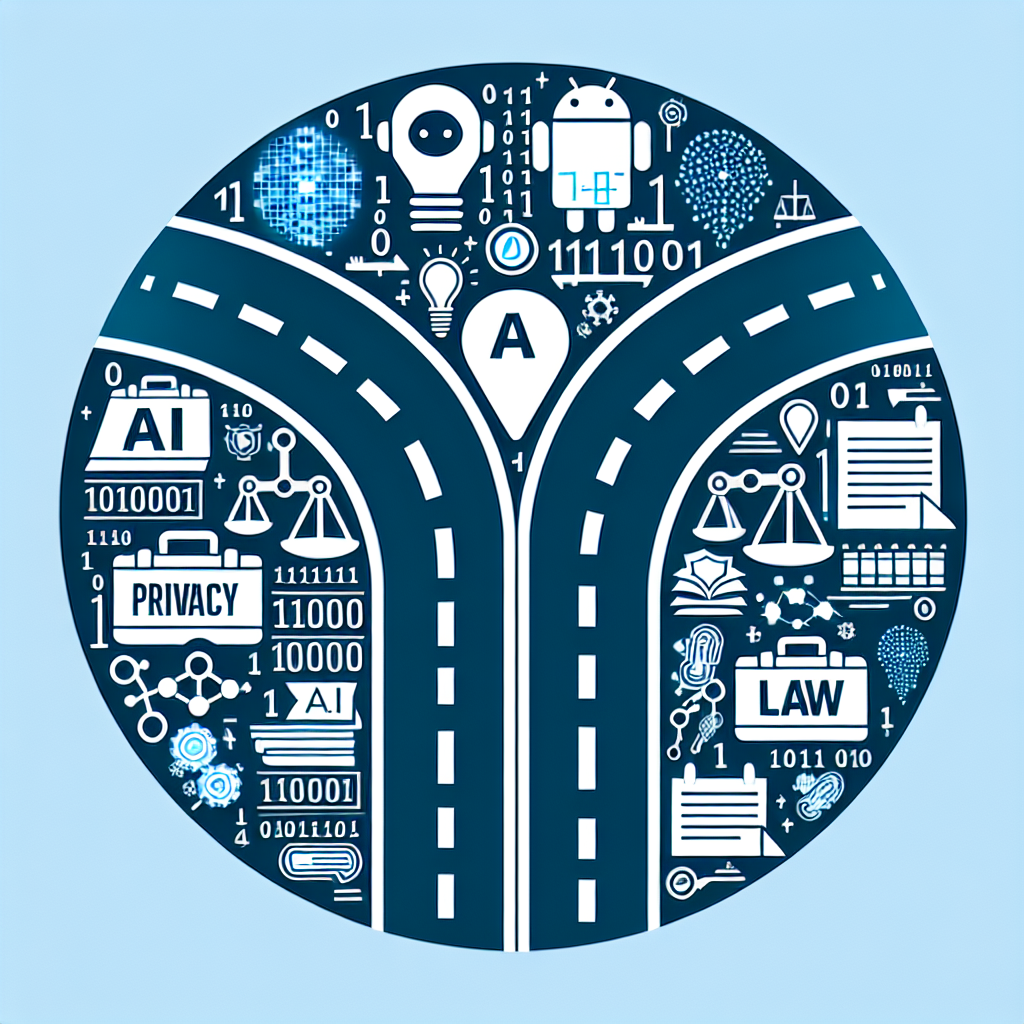The Intersection of AI and Privacy Law
Artificial Intelligence (AI) has become an integral part of our daily lives, from personal assistants like Siri and Alexa to self-driving cars and predictive analytics software. With the increasing use of AI technologies, concerns about privacy and data protection have also grown. Privacy laws and regulations are constantly evolving to keep pace with the rapid advancements in AI, but there are still many challenges and uncertainties in this intersection between AI and privacy law.
Privacy laws around the world govern how personal data is collected, stored, processed, and shared. These laws are designed to protect individuals’ privacy and ensure that their data is handled in a responsible and transparent manner. However, the use of AI presents unique challenges to privacy law, as AI technologies often involve the processing of large amounts of data, some of which may be sensitive or personal in nature.
One of the key challenges in the intersection of AI and privacy law is the issue of consent. Many privacy laws require individuals to give their consent before their data can be collected and processed. However, AI technologies often rely on large datasets to train algorithms and make predictions, which may include data that individuals have not explicitly consented to. This raises questions about whether traditional consent mechanisms are adequate for AI applications, and how best to ensure that individuals’ privacy rights are respected in the age of AI.
Another challenge is the issue of transparency and accountability. AI algorithms are often complex and opaque, making it difficult for individuals to understand how their data is being used and for what purposes. This lack of transparency can erode trust in AI systems and raise concerns about bias, discrimination, and other ethical issues. Privacy laws seek to address these concerns by requiring organizations to be transparent about their data practices and to be accountable for the decisions made by AI systems.
The intersection of AI and privacy law also raises questions about data minimization and purpose limitation. Privacy laws typically require organizations to collect only the data that is necessary for a specific purpose, and to use that data only for the purpose for which it was collected. However, AI technologies often involve the processing of large amounts of data for multiple purposes, which may make it difficult to comply with these principles. Organizations must strike a balance between using data to improve AI systems and respecting individuals’ privacy rights.
In response to these challenges, many countries are updating their privacy laws to better address the unique issues raised by AI technologies. For example, the European Union’s General Data Protection Regulation (GDPR) includes provisions on automated decision-making and profiling, which are often used in AI applications. The GDPR also requires organizations to conduct data protection impact assessments for high-risk AI systems, and to implement privacy by design and by default principles in the development of AI technologies.
In the United States, the Federal Trade Commission (FTC) has issued guidelines on the use of AI and algorithms in decision-making, which emphasize the importance of transparency, accountability, and fairness. Several states have also passed laws regulating the use of AI in various sectors, such as employment, healthcare, and criminal justice. However, there is still a lack of comprehensive federal privacy legislation in the US, which has led to a patchwork of state laws and regulations.
The intersection of AI and privacy law is a complex and rapidly evolving field, with many legal and ethical challenges that need to be addressed. Organizations that are developing or using AI technologies must be aware of the regulatory requirements in their jurisdiction and take steps to ensure compliance with privacy laws. This may involve conducting privacy impact assessments, implementing privacy-enhancing technologies, and establishing clear policies and procedures for the responsible use of AI.
FAQs:
Q: How does AI impact privacy rights?
A: AI technologies can impact privacy rights in various ways, such as through the collection, processing, and sharing of personal data. AI algorithms may use data to make predictions or decisions about individuals, which can have implications for their privacy and autonomy.
Q: What are some key privacy principles that organizations should consider when developing or using AI?
A: Organizations should consider principles such as data minimization, purpose limitation, transparency, and accountability when developing or using AI technologies. These principles can help ensure that individuals’ privacy rights are respected and that AI systems are used in a responsible and ethical manner.
Q: How can organizations ensure compliance with privacy laws in the use of AI?
A: Organizations can ensure compliance with privacy laws by conducting privacy impact assessments, implementing privacy by design and by default principles, and establishing clear policies and procedures for the responsible use of AI. Organizations should also stay informed about regulatory developments in the intersection of AI and privacy law.
Q: What are some emerging trends in the intersection of AI and privacy law?
A: Some emerging trends in the intersection of AI and privacy law include the development of privacy-enhancing technologies, the use of data protection impact assessments for high-risk AI systems, and the implementation of ethical guidelines for the use of AI in decision-making. These trends reflect the growing recognition of the importance of protecting individuals’ privacy rights in the age of AI.

